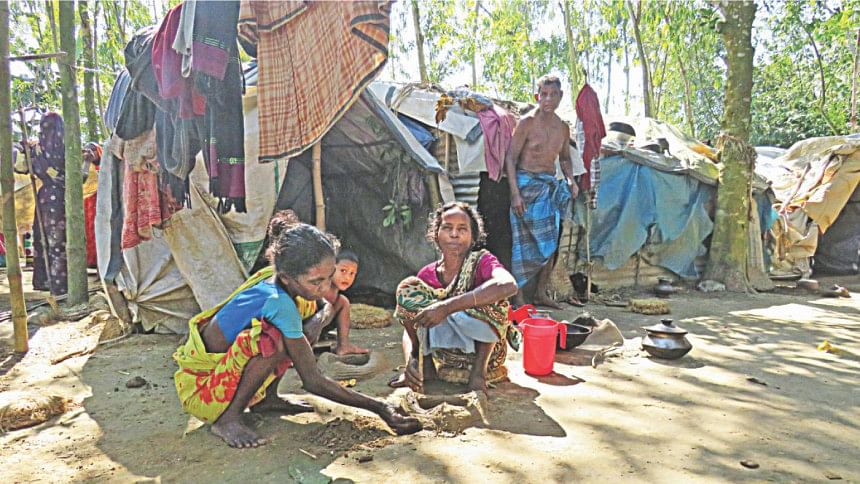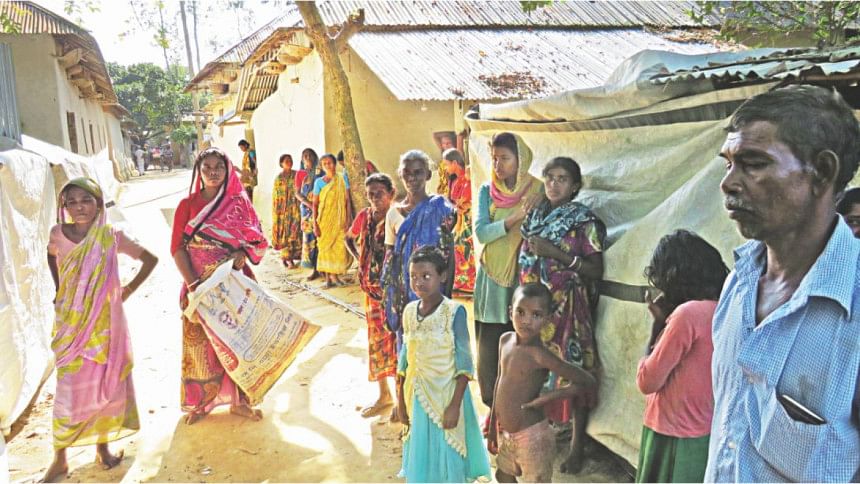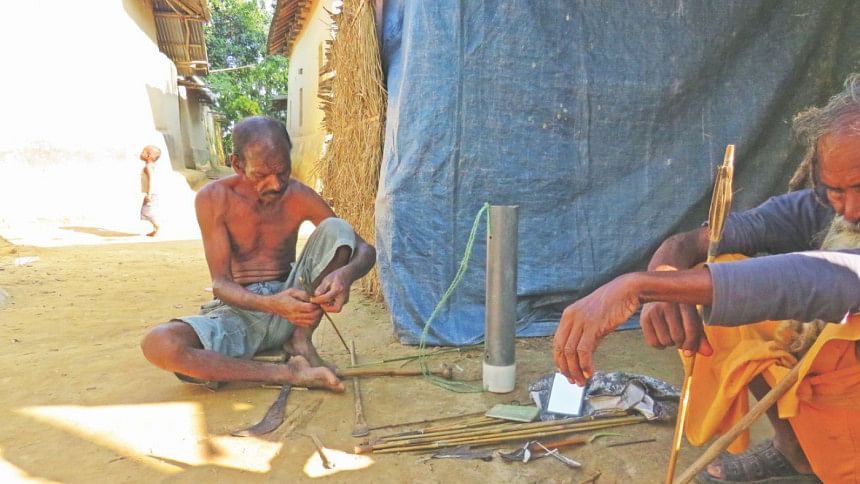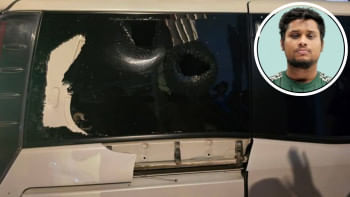One year and counting…

Dizen Tudu wasn't always a calculative person. There was a time when he could work in the field under the sweltering heat all day and still have enough energy left in him to play with his three boys at home in the evening.
A little more than a year ago, he was the sole breadwinner of his family. His boys weren't allowed to work. He would cover the extra mile alone, in order to ensure that his children could study and would not have to take any pressure.
The setting of the shanty he lives in today though paints a completely different picture. The 42-year-old Santal, who was hit with a rubber bullet in his eye on November 6 last year, focuses on saving every ounce of his energy to perform the most basic tasks.
"One of my eyes is gone. It does not function. The other one has deteriorated a bit. I can't stay in the sun for more than 30 minutes. My head heats up and I need to rest," laments Dizen, who now lives in a village nearby the mill along with his family.
"Nowadays, I don't even feel like talking. It takes too much energy and I feel tired. This is all because of the bullet that hit me. I think it has affected my brain. Have a look. You can still see the splinters on my forehead and my face," he says while tilting his head.
Dizen's wife, Morses Tudu, has since been compelled to take charge of the family. It hasn't been easy.
"My family eats once a day. Since he can't work, I have to travel far looking for work and then I have to come home and take care of the family as well. It's difficult, but who else will do it?" she asks.
Most of the Santals used to work as day labourers. However, according to them, ever since the attack on November 6, many locals haven't been interested in giving them jobs, which has forced them to travel farther in a bid to earn money. Most of the Santals, as a result, have been depending upon aid that they have been receiving from the NGOs. The government, they allege, haven't done much.
Their dire situation is best described by Morses: "This is a free country and I want my freedom. We are a part of this country. Where will we go? How long will we live on the roadsides? We can't do this for much longer. We want the government to build the houses in the place where we were in. We need to be paid for our loss."

On November 6 last year, three Santal people were killed and several injured in a clash between the police and the Santals at the Shahebganj sugarcane farm of the Rangpur Sugar Mills in Gobindaganj upazila over a land dispute. Dizen is one of those victims and his situation has worsened over the year.
According to the Santals, they owned most of the land before the government acquired it in the 1950s. The deal though was that the land would only be used for sugarcane farming to produce raw materials for the sugar mill.
Leasing it out for any other purpose would lead to the termination of the contract. Santals claim the agreement was flouted and, as a result, they erected huts on nearly hundred acres of land at the Shahebganj farm on July 1 last year.
In a bid to remove the Santals, they were attacked and their houses were torched. Soon after the attack, a video of the police setting the houses in the area on fire was leaked and it went viral on the social media. Under pressure, a police sub-inspector and a constable, out of the hundreds deployed that day, were suspended and the SP of Gaibandha was subsequently transferred.
As things stand now, the police are investigating the cases filed before and after the incident.
In the meantime, several Santals like Dizen and Morses have been struggling to recover from wounds and are also finding it difficult to make ends meet.
Bimol Kisko was returning home when the gunfire began on November 6. It was around 10 or 11 in the morning, he recalls. He got shot in both legs and has been bedridden ever since. He is afraid that he is becoming too much of a burden on his family.
"I feel okay when I am lying down; however, the moment I stretch my legs a bit, they give in. I have trouble bending down in the bathroom and I have to depend on my children," says Bimol.
"My children are set to give their exams soon. If I don't pay their fees, they won't be allowed to enter the hall. You wanted to know how we have been doing for the last one year, you can see it for yourself," the 40-year-old adds with a wry smile.

Walk around the Jaipur Para and Madarpur villages, near the mill, and you will find several Bimols and Dizens.
35-year-old Asha Marma explains how the area is in dire need of medication, food and shelter. "The rains this time have made everything so much worse. We haven't received any help from the government. And why? Is it a crime to stand up for your own land?"
Hokna Mormu, who was shot in his chest, talks about how he often goes to other villages and begs for rice for his family.
Philimon Baske, the Vice President of the Santal's Andolon Songram Committee, describes the situation of the Santals living there as unimaginable.
Soon after the attack on November 6, the Santals initially refused to take aid from government officials. Eventually, Minister Obaidul Quader stepped in and the Santals accepted some. However, according to Philimon, nothing else was offered.
Recently though, the Upazila Nirbahi Officer (UNO) of the region offered 3,000 tonnes of rice to the Santals. It's aid that Philimon says the Santals will accept.
"We will accept the aid, but we won't stop our protest. There is a new UNO here and there are new people in the administration. They seem to be understanding. Those who were here before just shouted and threatened us," says Philimon.
The government has promised that it will solve the problems of the Santal community of Gaibandha permanently. They have promised to rehabilitate them.
However, the anxiety in the region among the Santals doesn't seem to have subsided.
Kalpana Begum, whose house was the first one in the area to be put on fire on November 6, best explains the situation: "Is there any point talking to you? So many journalists have come and gone, but we still haven't seen any kind of justice."





Comments